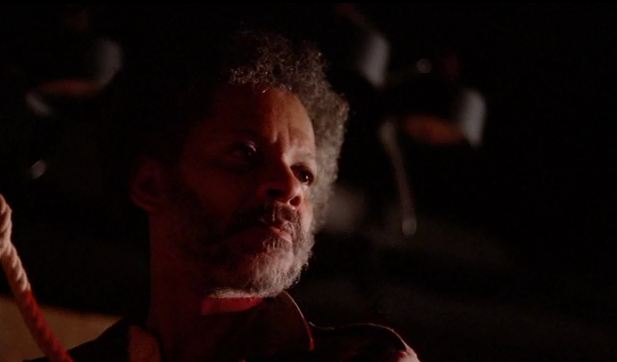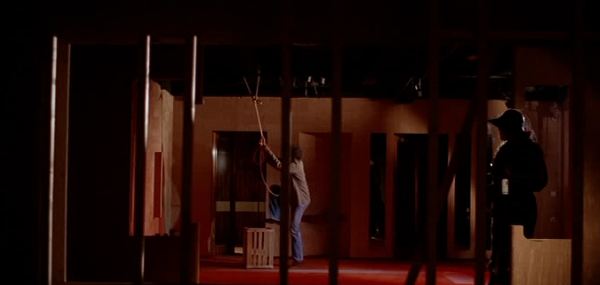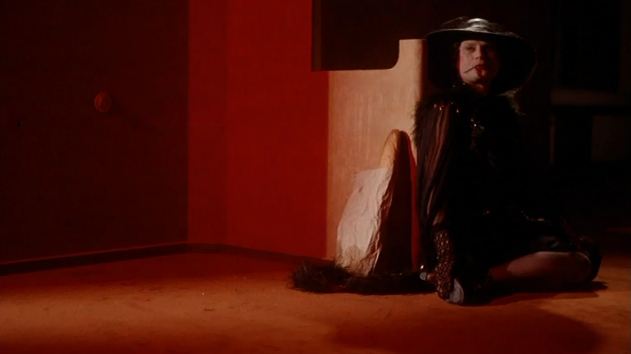What happens in empty office buildings in West Germany in 1978? People go there to kill themselves. Elvira’s journey through the building is quite condensed, but one feels that she could go on a lot longer, having Franz Kafka like adventures in endless empty rooms.
And as for quoting in films? I feel that directors can do it for the benefit of critics; it shows those that care about these things that the director is well versed in cinema; always a good fall-back if a critic doesn’t know if what they’re looking at is art or good or what. And then quotes can be there for the director’s own amusement, or for the amusement of the fans, who will be expected to gain that little bit of extra context for the scene. So enter Elvira to the stairwell of the building (with baguette – well it is a phallus, I suppose… ) when on the 15th floor Fassbinder’s film quote from Murnau’s Nosferatu, Anton Saitz and his colleagues travel downstairs, with their shadows casting on the stairwell walls in full expressionistic effect.
Tracking down Bob Dorsay proves a tricky task. There will be those out there who know more about this elusive actor than I, though it could be the case that this cameo, labelled Bob Dorsay after Robert Dorsay, a singer and an opponent of the Nazis, who was betrayed by a fellow actor and was executed on 29 October, 1943, for telling jokes and making defeatist remarks. This sort of thing couldn’t be more typical of the type of humanity that many of us, including Fassbinder, despise.
People just don’t go to office buildings for any old kind of suicide either – this is a strictly philosophical affair and although it’s about the negation of the universe, the suicide reminds us that this negation is ironically a positive assertion of the powers of the will to live (or not, as need be). The suicide, he explains, isn’t sick of life, but just the terms under which he or she has to live it.
'I don’t mind if you watch.'
The suicide in In a Year of 13 Moons is cooly philosophical in order to make a few basic points about the value of life, much on Fassbinder’s mind in the making of this film. The value of love is well calculated throughout, and so also the value of life. The suicide remains calm and humane – lighting Elvira’s cigarette and opening her wine for her, as she has come prepared with neither means. The reasons for the suicide are perfectly human, but not at all common – they are due to the suicide’s feeling that he ‘doesn’t want things to go on being real just because I perceive them.’ The fact is therefore, that the universe is being punished by the suicide, using the only power he feels he has over the universe, which is the power to negate. It is in fact quantum physics – but as Elvira points out, powerful as it might be, it doesn’t change anything for the rest of us, who will still go on perceiving, thus giving the universe reality.
And as the eavesdropping cleaner (Ursula Lillig) in the following scene explains: it happens every few weeks. With so many empty offices…
Naturally, the suicide sees humanity as of little worth, with its shortcomings, its misery, anguish and death… and although that may be true, and yet not enough to stop the vast majority of us from ending it immediately. But so. I have managed to write these many articles on the film In a Year of 13 Moons, and I haven’t mentioned Armin Meier. Well, should I? He wasn’t in it, after all, was he?



